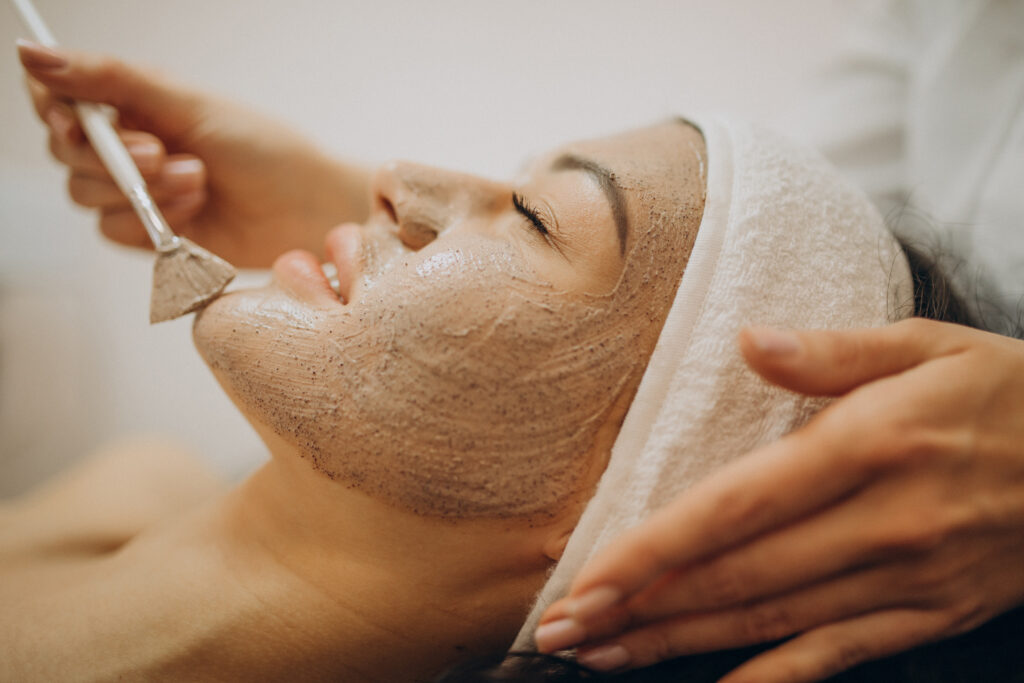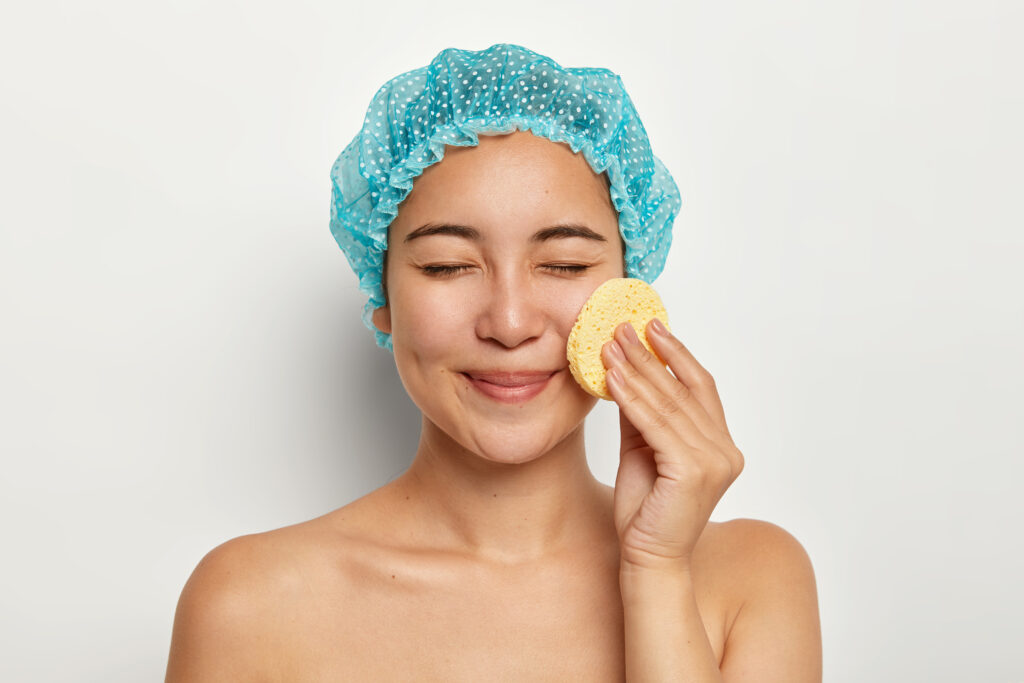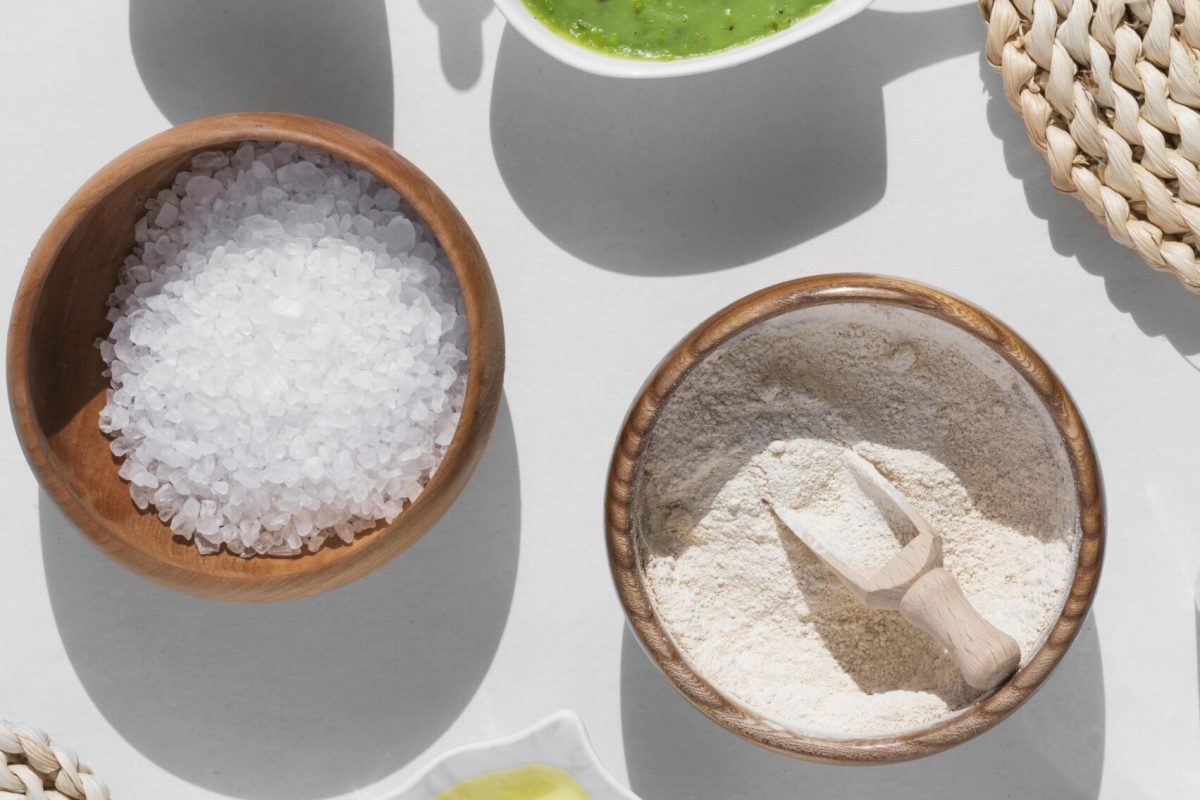
Exfoliation is the process of removing dead skin cells from the surface of your skin, leaving it looking fresh and glowing. It’s an important step in any skincare routine because it smooths out rough texture, brightens the complexion, and allows your skin to better absorb moisturizers and serums.
Exfoliation is classified into two types:
- Physical exfoliation (the manual removal of dead skin with scrubs or tools)
- Chemical exfoliation (using acids like AHAs or BHAs to dissolve dead skin cells).
Table of Contents
ToggleBenefits of Exfoliation for Smoother Skin:
Regular exfoliation improves skin texture by removing rough patches, leaving your face smoother and softer.
It also improves skin tone, stimulates collagen production for a more youthful appearance, and allows other skincare products to penetrate deeper into the skin.
How Often Should You Exfoliate?
Your skin type determines how frequently you should exfoliate.
Dry skin: Use a gentle exfoliant 1-2 times per week to avoid irritation.
Oily Skin: Apply 2-3 times per week to help remove excess oil and prevent clogged pores.
Sensitive Skin: Use a mild exfoliant once a week to prevent redness and irritation.
Combination Skin: once or twice a week, focusing on oily areas such as the T-zone.
Excessive exfoliation can cause redness, dryness, irritation, and breakouts. To avoid this, always use moisturizer, be gentle, and allow your skin to recover between exfoliators.

Right Exfoliant for Your Skin Type:
Dry skin: Use gentle enzyme exfoliants to remove dead skin without causing irritation.
Oily Skin: Choose salicylic acid-based exfoliants to help remove excess oil and unclog pores.
Sensitive Skin: Use mild exfoliants such as lactic acid, which are gentle and soothing to delicate skin.
Combination Skin: Maintain balance by using a variety of gentle exfoliants and avoiding over-exfoliating any one area.
DIY Exfoliation Recipes
Here are a couple of easy-to-make natural exfoliating scrubs with ingredients you probably already have at home:
Sugar and Olive Oil Scrub: Combine 1 tablespoon sugar and 1 tablespoon olive oil. Massage it gently into your skin in circular motions, then rinse with warm water. This will leave your skin feeling soft and smooth.
Coffee and Coconut Oil Scrub: Mix 1 tablespoon ground coffee and 1 tablespoon coconut oil. Apply it to your skin, massage gently, and rinse off. This scrub removes dead skin cells and restores your natural glow.

Exfoliation Tips for the Face and Body
When exfoliating your face, use gentle, circular motions and avoid sensitive areas such as the eyes. Loofahs, exfoliating gloves, and body scrubs are all effective tools for removing dead skin from the body.
After exfoliating, always apply a good moisturizer to keep your skin hydrated and smooth. This helps to lock in moisture and keep your skin soft and glowing.
Aftercare: Hydrating and Protecting Your Skin
After exfoliating, moisturize your skin to keep it soft and smooth. Moisturizing helps to retain moisture and prevent dryness.
Because exfoliation can make your skin more sensitive to the sun, using sunscreen (SPF) is critical for protecting your skin from harmful UV rays and preventing damage.
Moisturize and use SPF on a regular basis to maintain healthy, glowing skin!
Conclusion
In summary, regular exfoliation can result in smoother, brighter skin by removing dead cells and improving texture. By determining the best exfoliation method for your skin type, you can improve your skincare routine and achieve great results. Remember to moisturize and protect your skin afterward for the best results. Try it and enjoy a glowing, healthy complexion!
FAQS
Exfoliation is the removal of dead skin cells from the skin’s surface, revealing smoother, healthier skin beneath.
It improves skin texture, unclogs pores, increases radiance, and facilitates the absorption of skincare products.
It depends on your skin type. Exfoliating 1-3 times per week is beneficial for most skin types.Sensitive skin may require less exfoliation.
There are two types of exfoliation: physical (scrubs, brushes, or tools) and chemical (acids such as AHAs and BHAs).
Yes, exfoliation can help prevent acne by clearing away dead skin cells and reducing excess oil buildup.